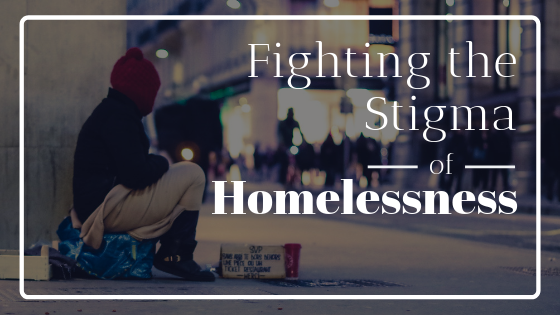So often, homeless individuals are stigmatized by the general public. There are many different blanket statements that are made about these individuals that seem to give the public a reason to not be compassionate and not be helpful. One such stigma is that homeless people are lazy – they are not willing and do not want to change their situation. Another stigma is that the only cause of their homelessness is poverty and if they got a job, it could be resolved. One final stigma that deserves mentioning is that people tend to think that speaking up or helping is not their responsibility or that someone else will do it.
The truth is, all of these are inaccurate views of this epidemic and we should be practicing kindness in seeking to assist the homeless population towards revitalization. Let’s go through each of these stigmas.
The People
The idea that homelessness is only caused by poverty is shortsighted. In fact, in London, most causes of homelessness are due to loss of tenancy, due to cuts to private tenancy and an increasing lack of housing benefits. Other major reasons for homelessness are escaping an abusive relationship, losing your long-time partner and job simultaneously, or even being discharged from a care facility for mental illness and not being prepared to support yourself.
The Situation
Homelessness is not a situation that people choose as a way to benefit off of the public without responsibility. It is not a chosen lifestyle. It is barely a life. Those who are experiencing homelessness do not enjoy the cold or the begging, it is often avoided or done with shame. These people are not menaces. Passing down judgment on a situation that you have no idea of is an act of menace.
The Change
The British public can start to address the way that we are perpetuating a stigma against the homeless and work to reverse it. Showing these souls compassion is a true sign of nationalism and kindness. Don’t shy away from dropping money in their cups – that could be their meals for the next few days. Look for ways to involve yourself and your family in the effort to support these individuals into stable situations. Probably most important, remember that they are people too and deserve human contact and kindness.
